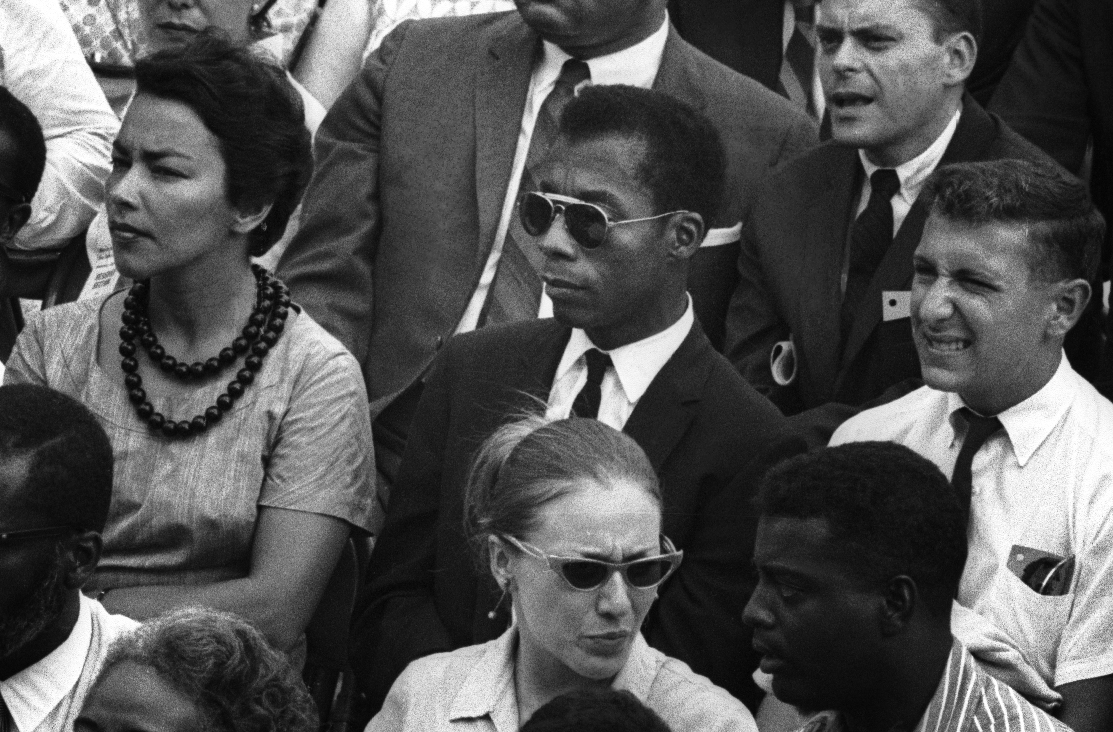
In an era when civilized discourse has gone the way of the flip phone, novelist, essayist and playwright James Baldwin—as heard and seen in Raoul Peck’s bracing documentary I Am Not Your Negro—is like an ambassador from a lost time. The movie is an imagining of an ambitious book Baldwin started to write but never completed, a work that was to be titled Remember This House, tracing the lives and legacies of three of his closest friends, Medgar Evers, Malcolm X and Martin Luther King Jr. Baldwin had completed only 30 pages of the book by the time he died in 1987. Peck obtained the notes for the manuscript from Baldwin’s estate, and has woven them into a compelling document that works as a mini-history of black racial identity in America from the mid- to late-20th century and beyond. All of the language in the film is Baldwin’s own: He himself appears in clips from TV or in taped footage of some of his appearances. And Samuel L. Jackson reads the excerpts from Baldwin’s manuscript, capturing the elegance and directness of the author’s language with his own distinctive, velvety voice.
I Am Not Your Negro lays out the historical and personal threads connecting Evers, the resolute activist who was gunned down by a segregationist in his carport in view of his wife and children, Malcolm X, assassinated by three members of the Nation of Islam after he’d broken his ties with the group, and King, whose approach to nonviolent protest shaped the Civil Rights Movement until his murder at the hands of James Earl Ray. It also cuts a window into Baldwin’s friendships with these three men, showing how their work helped shape his thinking. To trace the outline of these entwined stories, Peck combines vintage and modern footage—from ’60s news clips to civilian cellphone videos of police brutality—to show how far we only think we’ve come in these 50-odd years. Footage showing Martin Luther King marching with some of his cohorts, being greeted by jeering young white men in crew cuts, some of them holding banners marked with crude swastikas, looks distressingly timely. We know King is gone, but the yelling onlookers don’t look all that different from some we see in news clips today, angry individuals certain that their rights as white people are being subverted.
But if I Am Not Your Negro is laced with moments of anger, it isn’t an inherently angry film. Peck’s aim seems to be to reintroduce Baldwin and his way of thinking to the world. Not that Baldwin is forgotten, but sometimes we need a bold red arrow to help us redirect our thinking, especially in a media world as cluttered and noisy as ours. Peck captures all that’s galvanizing and forceful about Baldwin’s words and demeanor. In the film Baldwin speaks, through his writings, of living in Paris in the late 1950s and seeing a newspaper photograph of a young black woman, 15-year-old Dorothy Counts, being taunted and spit upon by white youths on her way to her newly integrated school in Charlotte, N.C. “There was unutterable pride, tension and anguish in that girl’s face as she approached the halls of learning, with history jeering at her back. It made me furious. It filled me with both hatred and pity. And it made me ashamed. Some one of us should have been there with her.” Baldwin knew he needed to return to the United States. “Everybody else was paying their dues. And it was time I went home and paid mine.”
Baldwin did return, working alongside his friends in the fight for Civil Rights, though he notes that he always knew he was really just a witness: “I was never in town to stay.” But perhaps that state of not-quite-belonging is what makes Baldwin’s observations so resonant for all times, not just his own. I Am Not Your Negro includes footage from a 1963 television panel featuring King, Malcolm X and Baldwin. “There are days, and this is one of them, when you wonder what your role is in this country, and what your future is in it,” Baldwin says at one point. “How, precisely, are you going to reconcile yourself to your situation here, and how are you going to communicate to the vast, heedless, unthinking, cruel white majority that you are here?” He caps that question with an observation so eloquent that it takes a moment to grasp the anguish at its core: “I’m terrified at the moral apathy, at the death of the heart, which is happening in my country.” The words “my country” are the clincher. Even if the place you were born, the place you will always call home, doesn’t have the power to break you, there’s no guarantee it will never break your heart.
More Must-Reads From TIME
- The 100 Most Influential People of 2024
- The Revolution of Yulia Navalnaya
- 6 Compliments That Land Every Time
- What's the Deal With the Bitcoin Halving?
- If You're Dating Right Now , You're Brave: Column
- The AI That Could Heal a Divided Internet
- Fallout Is a Brilliant Model for the Future of Video Game Adaptations
- Want Weekly Recs on What to Watch, Read, and More? Sign Up for Worth Your Time
Contact us at letters@time.com